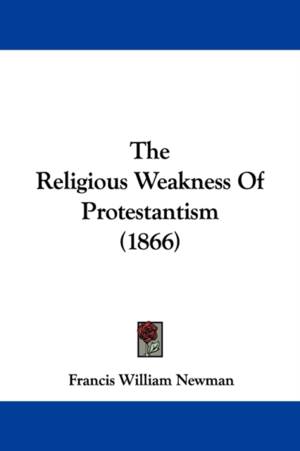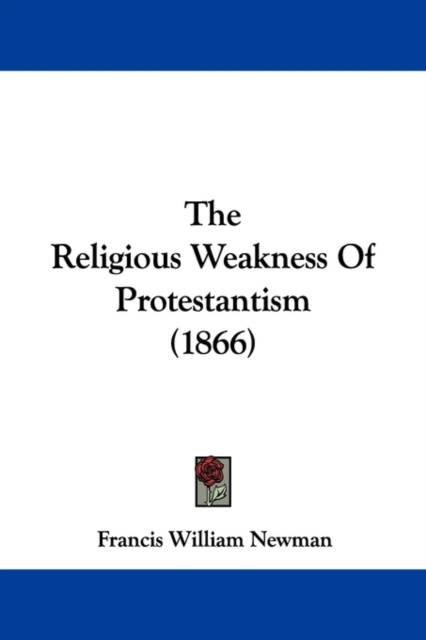
- Retrait gratuit dans votre magasin Club
- 7.000.000 titres dans notre catalogue
- Payer en toute sécurité
- Toujours un magasin près de chez vous
- Retrait gratuit dans votre magasin Club
- 7.000.0000 titres dans notre catalogue
- Payer en toute sécurité
- Toujours un magasin près de chez vous
18,45 €
+ 36 points
Description
The Religious Weakness of Protestantism, written by Francis William Newman and first published in 1866, is a critical examination of the theological and philosophical underpinnings of the Protestant faith. Newman, a prominent theologian and brother of the famous author and thinker John Henry Newman, argues that Protestantism suffers from a fundamental weakness in its understanding of God and the world, which leads to a lack of coherence and consistency in its teachings.Newman begins by tracing the historical roots of Protestantism, from its origins in the Reformation to its various branches and denominations in the modern era. He then turns to a detailed analysis of the Protestant worldview, focusing on its emphasis on individualism, rationalism, and the authority of scripture. He argues that these principles, while valuable in many respects, ultimately lead to a fragmented and incomplete understanding of the divine.Newman's critique is wide-ranging and covers a variety of topics, including the nature of God, the problem of evil, the role of tradition in religious belief, and the relationship between faith and reason. He also offers a detailed comparison of Protestantism and Catholicism, arguing that the latter provides a more coherent and comprehensive vision of the divine.Despite its critical tone, The Religious Weakness of Protestantism is not intended as an attack on the Protestant faith, but rather as a call for a deeper and more nuanced understanding of religious truth. Newman's work remains a valuable contribution to the ongoing dialogue between different religious traditions and a thought-provoking exploration of the nature of faith and belief.Also Contains Thoughts On A Free And Comprehensive Christianity.This scarce antiquarian book is a facsimile reprint of the old original and may contain some imperfections such as library marks and notations. Because we believe this work is culturally important, we have made it available as part of our commitment for protecting, preserving, and promoting the world's literature in affordable, high quality, modern editions, that are true to their original work.
Spécifications
Parties prenantes
- Auteur(s) :
- Editeur:
Contenu
- Nombre de pages :
- 64
- Langue:
- Anglais
Caractéristiques
- EAN:
- 9781104399702
- Date de parution :
- 27-04-09
- Format:
- Livre broché
- Format numérique:
- Trade paperback (VS)
- Dimensions :
- 152 mm x 229 mm
- Poids :
- 99 g

Les avis
Nous publions uniquement les avis qui respectent les conditions requises. Consultez nos conditions pour les avis.






